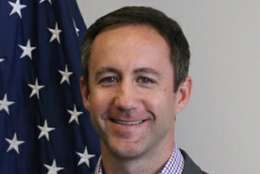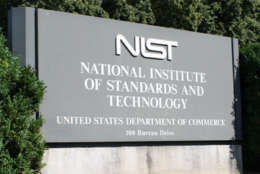Blockchain
-
If the two-sided toaster revolutionized breakfast, blockchain will revolutionize just about everything in technology.
August 14, 2018 -
Blockchain, one of the latest trends in federal IT, finds yet another potential use case in government — keeping track of electronic health record (EHR) data.
August 09, 2018 -
NSF will use robotics process automation to improve its intergovernmental transactions, while Interior will apply bots to improve its electronic invoice processing.
July 17, 2018 -
Jim Liew, co-founder of tech firm SoKat and assistant professor at Johns Hopkins Business School, discusses how the D.C. region's universities are teaching entrepreneurs to take advantage of new technologies, like blockchain, AI, and machine learning. Perhaps more important, however, is how universities are teaching entrepreneurial students to get up after they fail, and learn from their mistakes.
June 15, 2018 -
The Interior Department's IG reported two of the nation's largest hydropower dams are at risk from insider threats.
June 13, 2018 -
Dan Helfrich, a principal with Deloitte consulting who leads the federal government services practice, said like any sport, sometimes you win and sometimes you lose when it comes predicting the next wave of technology.
May 29, 2018 -
The Office of Personnel Management already has its first blockchain prototype for part of its new Employee Digital Record system, and it's performing better than expected.
May 25, 2018 -
Peter Rogers, CEO of Welford Management, explains how blockchain works, and how it could be a great asset to the D.C. region. It's not just about Bitcoin, in fact, it has a wide range of possible use cases.
April 30, 2018 -
Federal technologists are figuring out if blockchain online ledger technology can help their agencies, while the Treasury Department's Bureau of the Fiscal Service may have an idea.
April 04, 2018 -
There's a lot of buzz about blockchain in government IT offices these days, and there's more to it than serving as than the technology behind Bitcoin.
April 04, 2018 -
Promoters of AI — the concept of which dates back 50 years — said it can reduce headcount, cut waste and fraud while digitizing customer service.
February 27, 2018 -
Scientist Dylan Yaga explains future of cryptocurrency applications at the National Standards of Institute and Technology, and beyond.
February 21, 2018 -
Some technology leaders at the Veterans Affairs Department think it might be time to take a step back and evaluate new innovations more dispassionately.
February 16, 2018 -
How can blockchain technology help federal IT professionals accomplish their agencies goals? Find out when Paul Brigner, managing director of Georgetown University's Security and Software Engineering Research Center, and Macro Solution Vice Presidents Todd Hager and Damanjit Padam join host John Gilroy on Federal Tech Talk. January 23, 2018
January 19, 2018 -
When thinking about future trends, it’s important to have a strong understanding of the important innovations impacting most sectors, and pair that understanding with an intuition around what impacts those innovations will have to most organizations in 2018.
January 10, 2018















